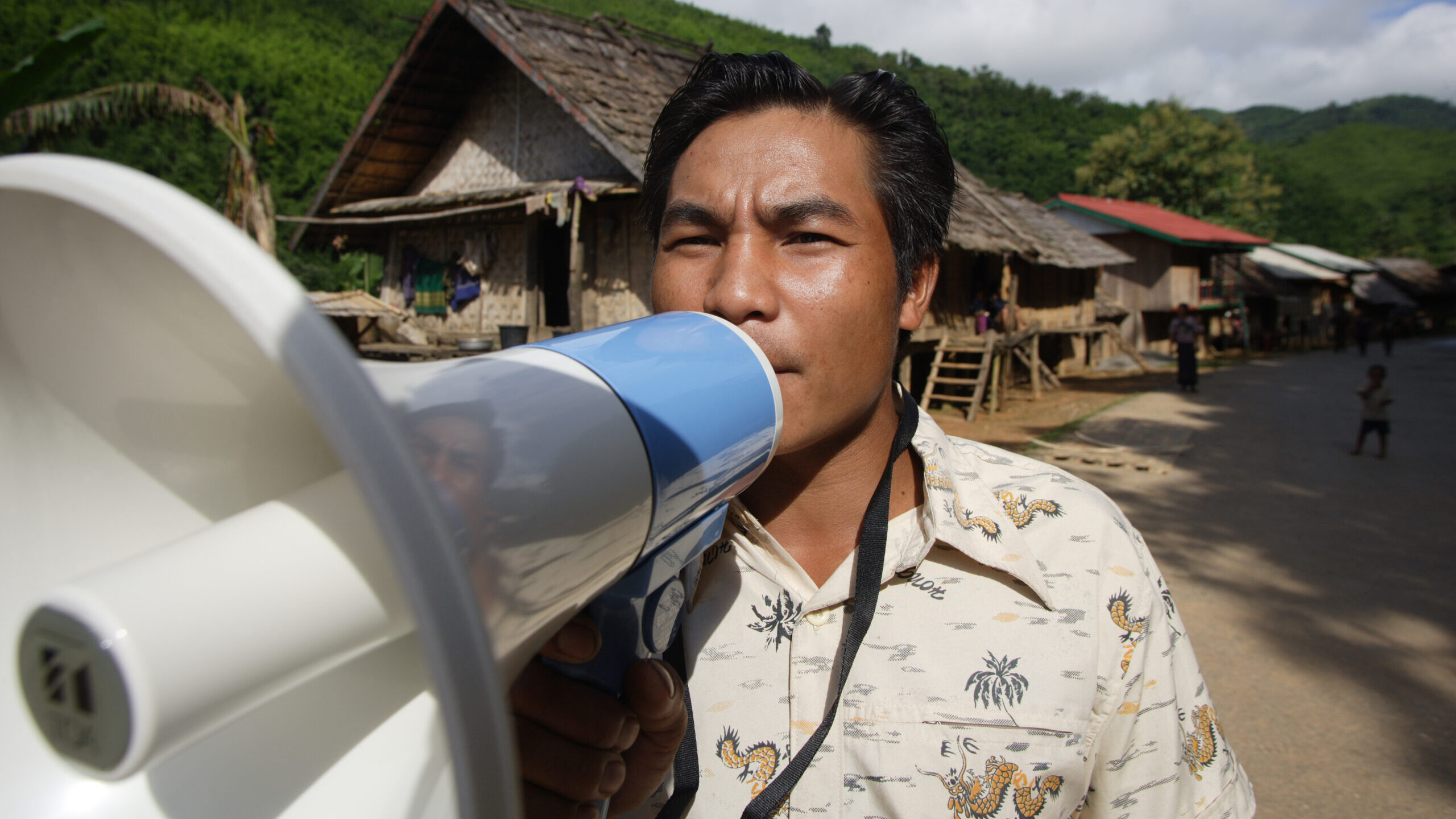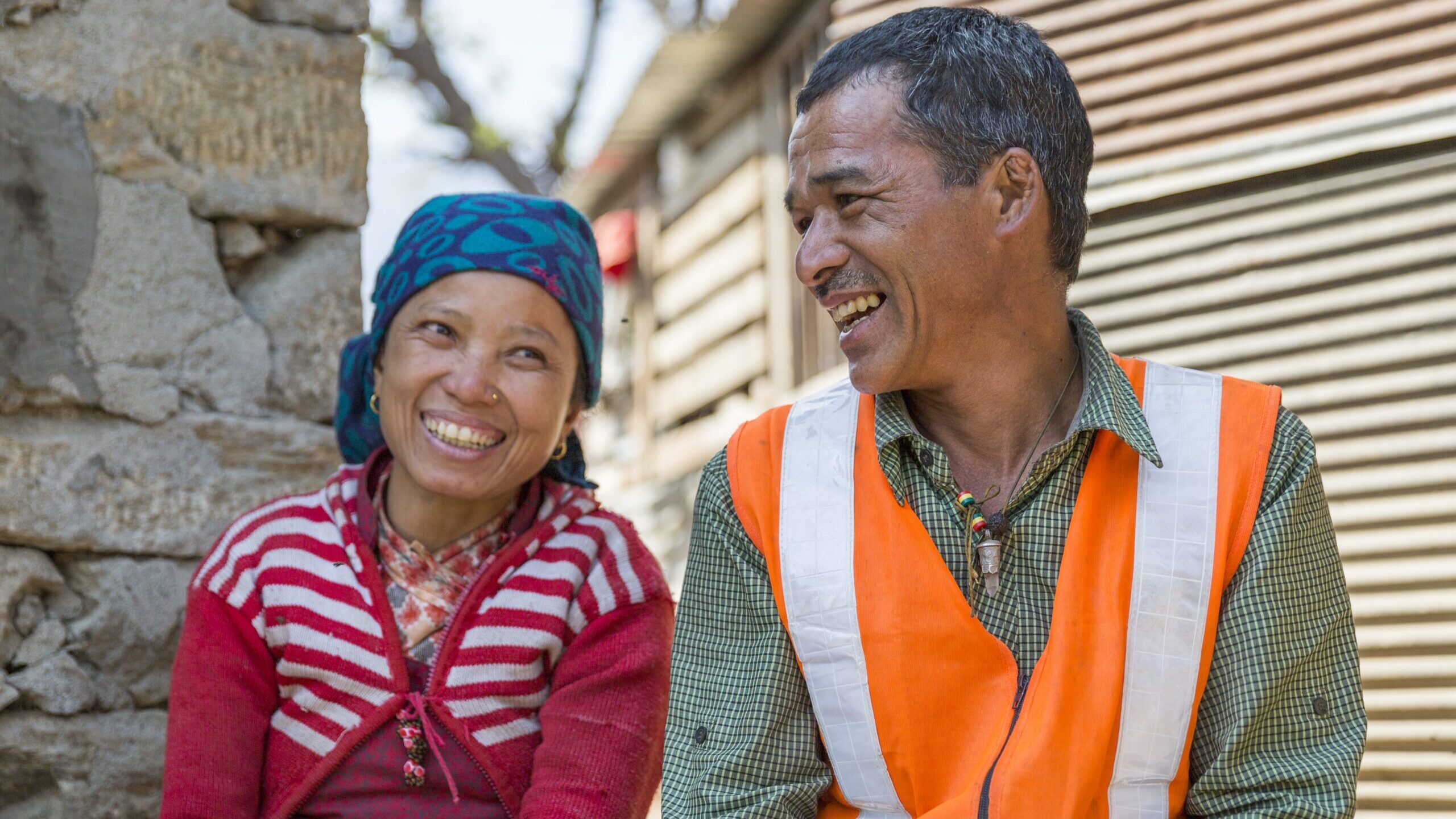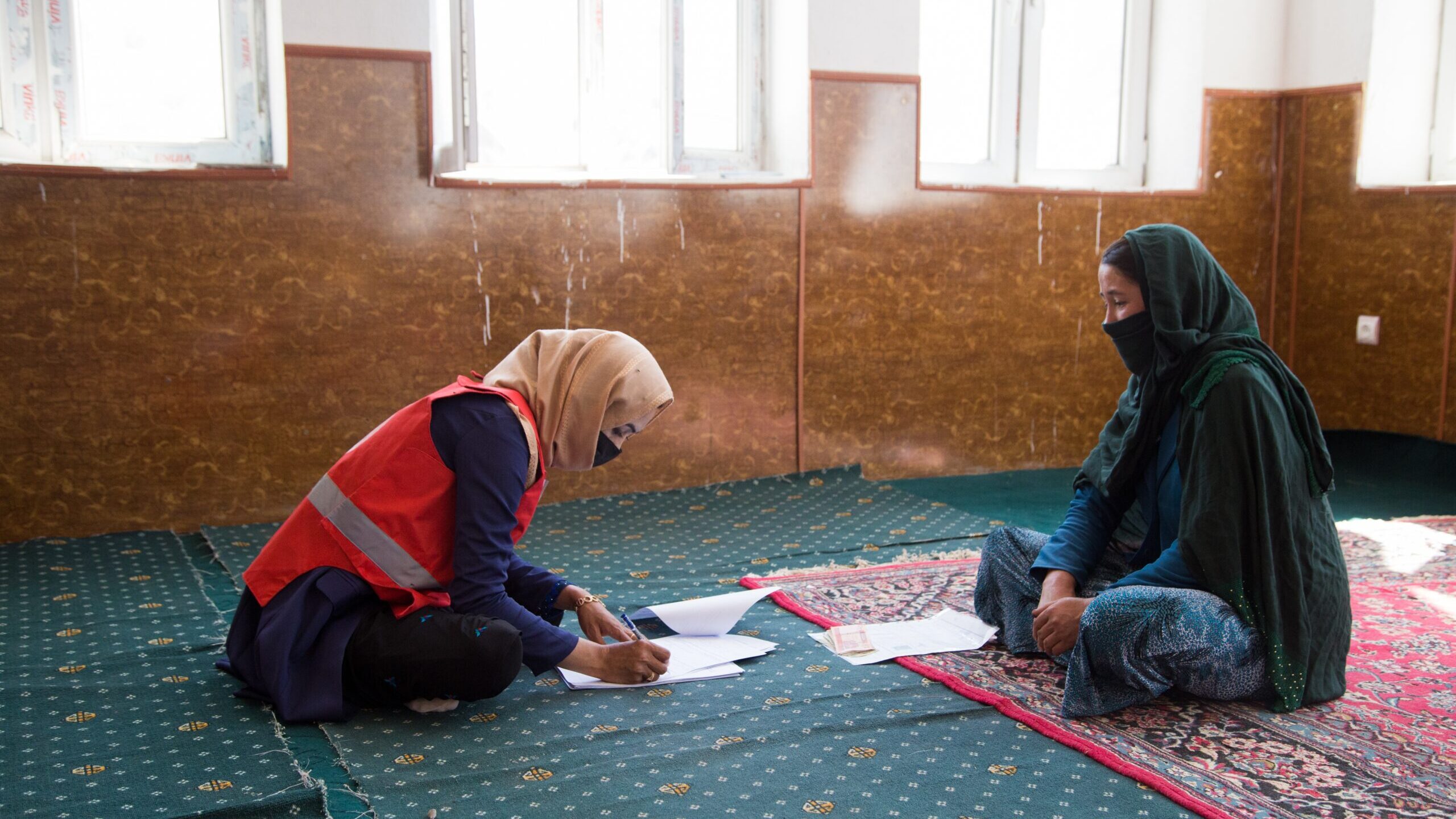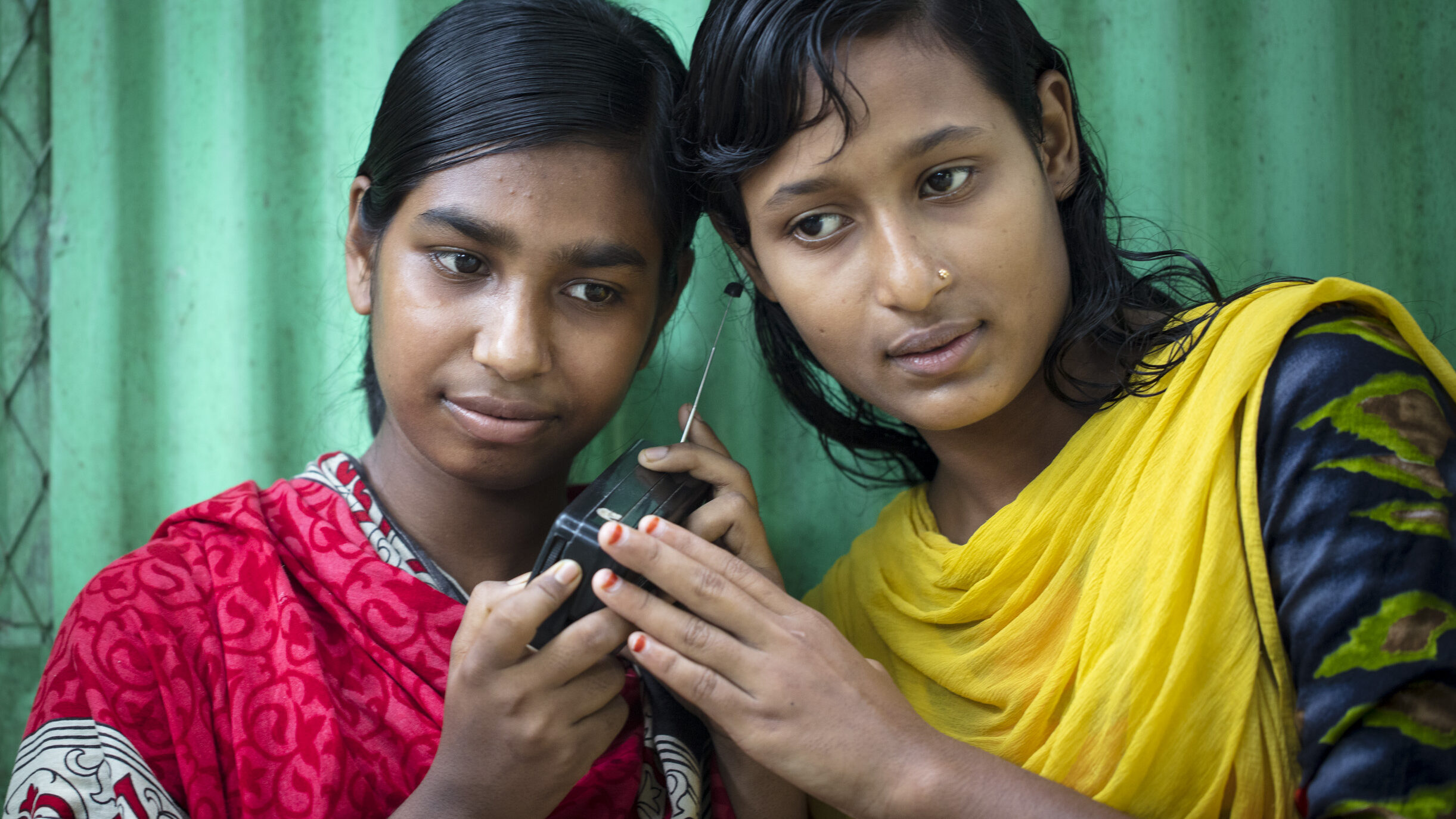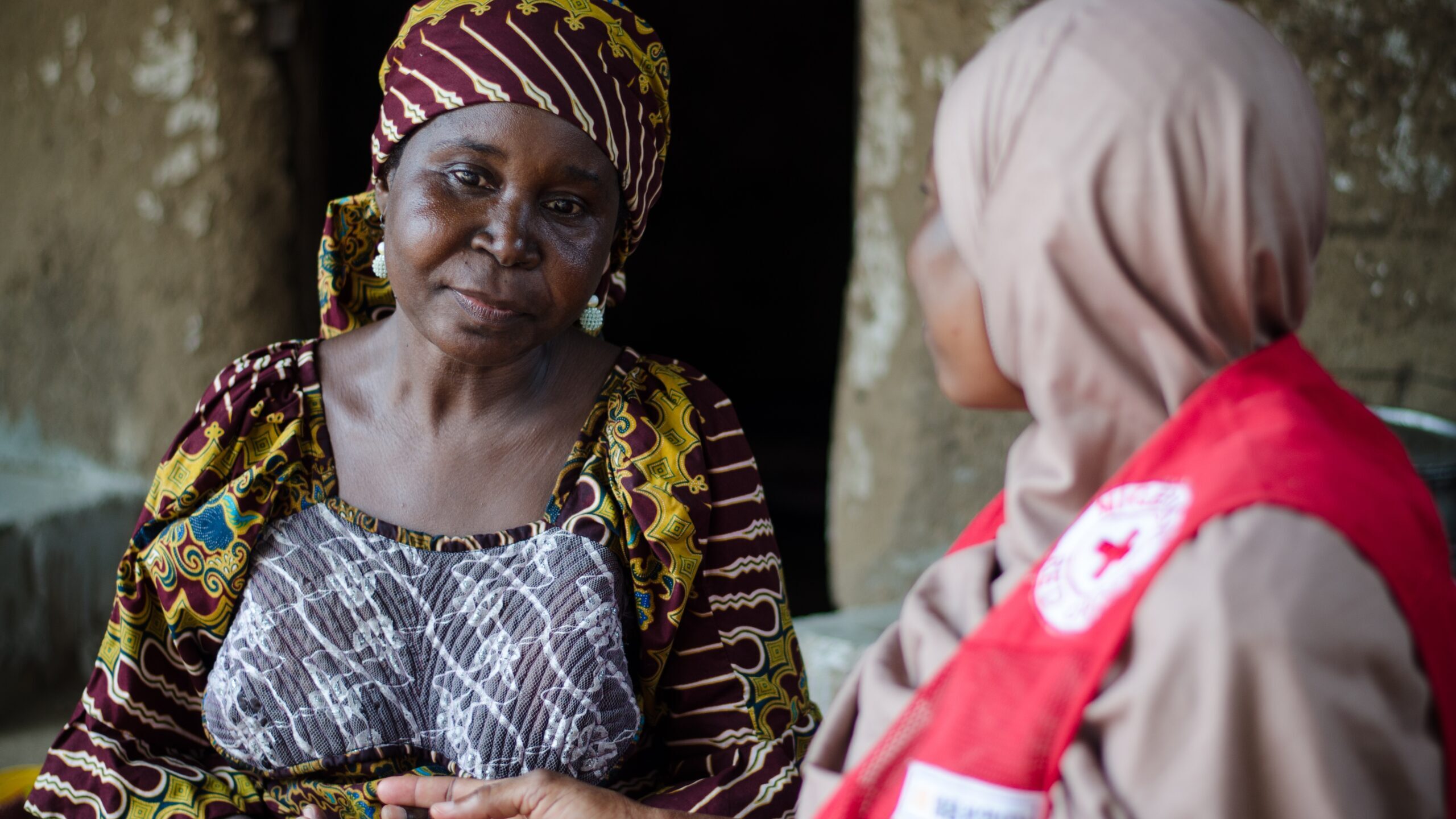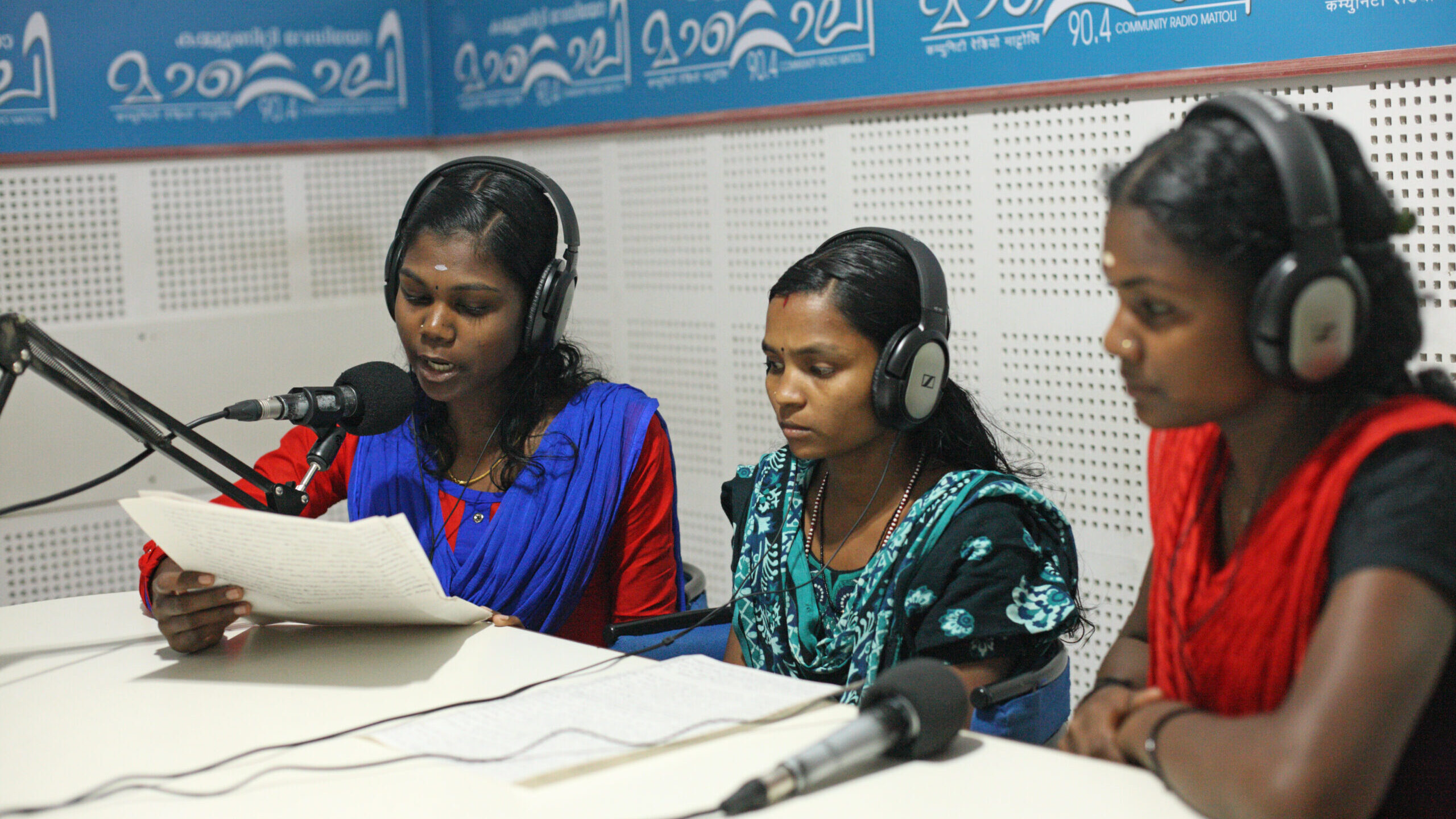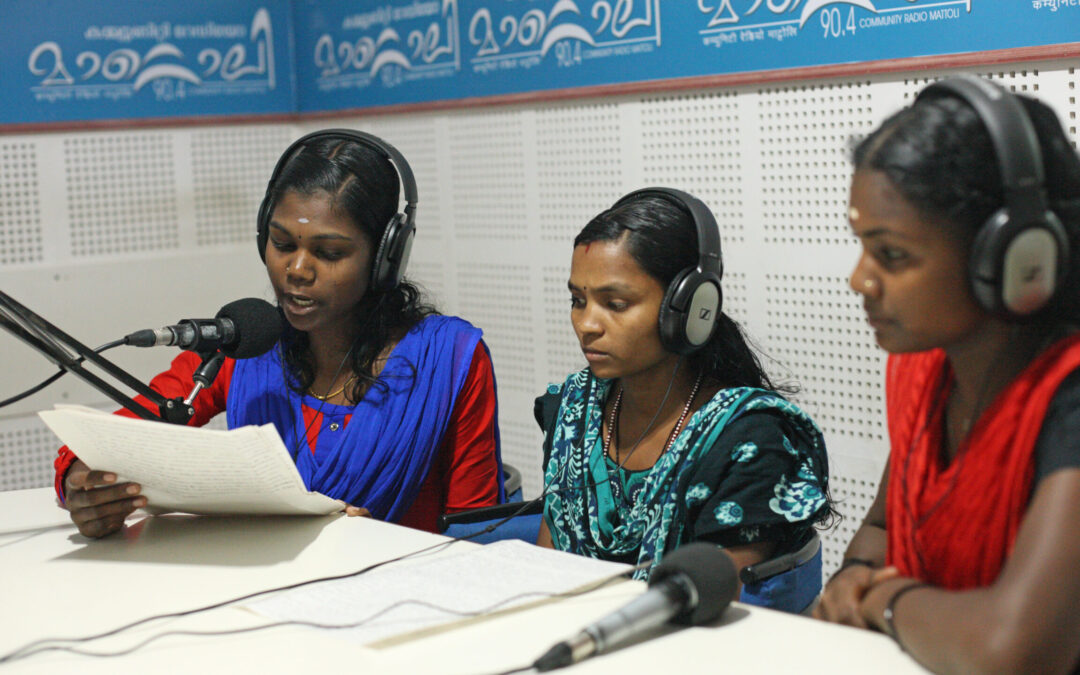
Oct 19, 2022 | Uncategorized
In this module
This module contains two sessions: 1) discussing tools and approaches for monitoring the use of integrated evidence by emergency response actors (Session 7.1), and 2) using community feedback data to take action and ‘close the loop’ by returning to affected communities with updates (Session 7.2).
Tracking the use or ‘application’ of integrated operational social science outputs: integrated outbreak analytics and monitoring
Content
This session discusses tools and approaches for monitoring the use of integrated evidence by emergency response actors to better inform operational decision-making. It is based on examples from the Democratic Republic of the Congo (DRC).
Content delivered through real-time presentation, and pre-recorded videos to explain in detail the theory behind the concepts covered, and to stimulate discussion based on the examples provided.
Learning outcomes:
- Understand the Integrated Outbreak Analytics approach and its application in emergency response
- Know different methods for ensuring the use of evidence for decision-making
- Learn what is needed to set up and manage a tool for monitoring the use of evidence
Duration: 100 minutes
Using community feedback to take action and “close the loop”
Content
This session aims to explore what an enabling environment looks like so that social science can inform different phases of an emergency response and how it can best be promoted.
Learning outcomes:
- Be able to identify opportunities to create an enabling environment for uptake of social science findings within response pillars, by technical clusters and by sectors
- Be able to identify opportunities to embed operational social science across different phases of a community-centred response
- Understand what an enabling environment looks like at the community level to ensure that research can inform local action
Duration: 110 minutes
The training modules were developed to address key social science competency domains for those working in community engagement and/or communications related fields. Each module is made up of multiple sessions. Each individual session has a specific focus and learning outcome, which relates directly to the competency statement developed for each domain.
9
Social Science Team Lead, Trainer & Research Specialist
The Collective Service
Acknowledgement
Development of this training package was led by Anthrologica for the Collective Service. The content was co-produced with partners from the Social Science in Humanitarian Action Platform (SSHAP), the Institute of Development Studies (IDS), Translators Without Borders (TWB), Médecins Sans Frontières (MSF), London School of Hygiene and Tropical Medicine (LSHTM), the International Federation of Red Cross and Red Crescent Societies (IFRC), the Rapid Research Evaluation and Appraisal Lab (RREAL) at University College London (UCL), UNICEF’s Social Science Analytics Cell (CASS), UNICEF’s Social Science for Community Engagement (SS4CE) team, the Centers for Disease Control (CDC), Oxfam and READY at Johns Hopkins University (JHU). Sincere thanks are also extended to the United Nations Volunteers (UNVs) who assisted with reviewing translated materials.
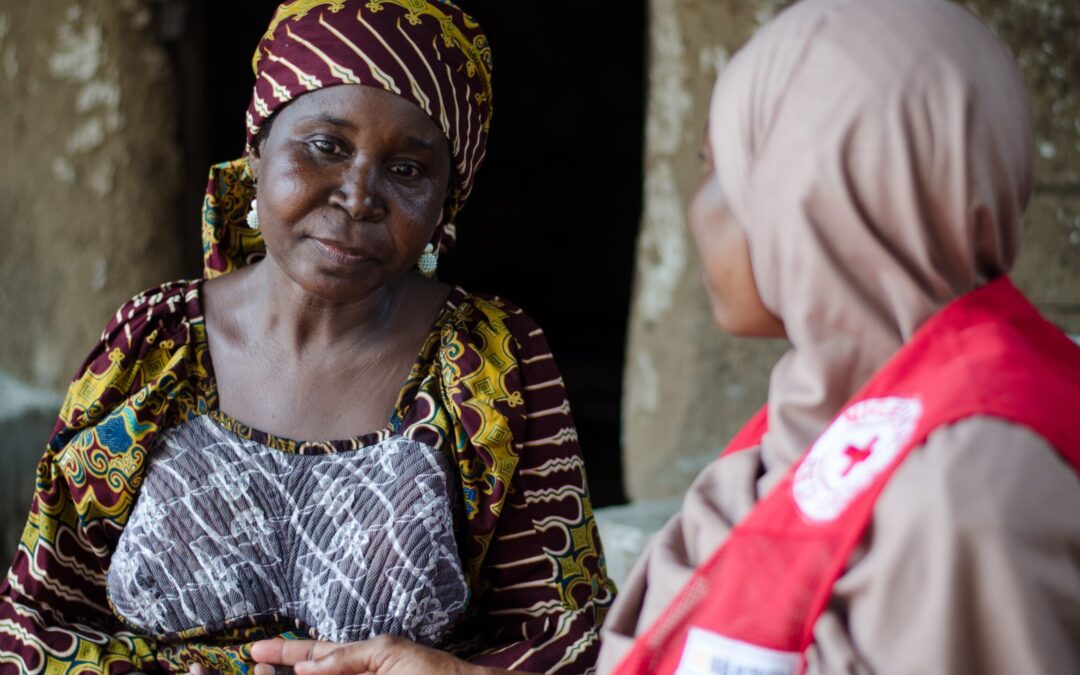
Oct 19, 2022 | Uncategorized
In this module
This module contains two sessions: 1) exploring how social science evidence can translate to actual change in the planning and roll-out of community engagement and communication activities (Session 6.1), and 2) exploring what an enabling environment looks like so that social science can best inform emergency response operations (Session 6.2).
Translating social science research
into action
Content
This session explores how social science evidence can translate to actual change in the planning and roll-out of community engagement and/or communications activities. It discusses key considerations, challenges and practical steps needed to translate social science evidence to action.
Learning outcomes:
- Understand what it means to translate social science research into action
- Understand the key challenges and opportunities to effectively translate knowledge to inform programming and/or policy
- Become familiar with practical steps needed to translate evidence to inform action
Duration: 120 minutes
Enabling environments for the uptake of social science evidence in emergency response
Content
This session aims to explore what an enabling environment looks like so that social science can inform different phases of an emergency response and how it can best be promoted.
Learning outcomes:
- Be able to identify opportunities to create an enabling environment for uptake of social science findings within response pillars, by technical clusters and by sectors
- Be able to identify opportunities to embed operational social science across different phases of a community-centred response
- Understand what an enabling environment looks like at the community level to ensure that research can inform local action
Duration: 110 minutes
The training modules were developed to address key social science competency domains for those working in community engagement and/or communications related fields. Each module is made up of multiple sessions. Each individual session has a specific focus and learning outcome, which relates directly to the competency statement developed for each domain.
9
Social Science Team Lead, Trainer & Research Specialist
The Collective Service
Acknowledgement
Development of this training package was led by Anthrologica for the Collective Service. The content was co-produced with partners from the Social Science in Humanitarian Action Platform (SSHAP), the Institute of Development Studies (IDS), Translators Without Borders (TWB), Médecins Sans Frontières (MSF), London School of Hygiene and Tropical Medicine (LSHTM), the International Federation of Red Cross and Red Crescent Societies (IFRC), the Rapid Research Evaluation and Appraisal Lab (RREAL) at University College London (UCL), UNICEF’s Social Science Analytics Cell (CASS), UNICEF’s Social Science for Community Engagement (SS4CE) team, the Centers for Disease Control (CDC), Oxfam and READY at Johns Hopkins University (JHU). Sincere thanks are also extended to the United Nations Volunteers (UNVs) who assisted with reviewing translated materials.
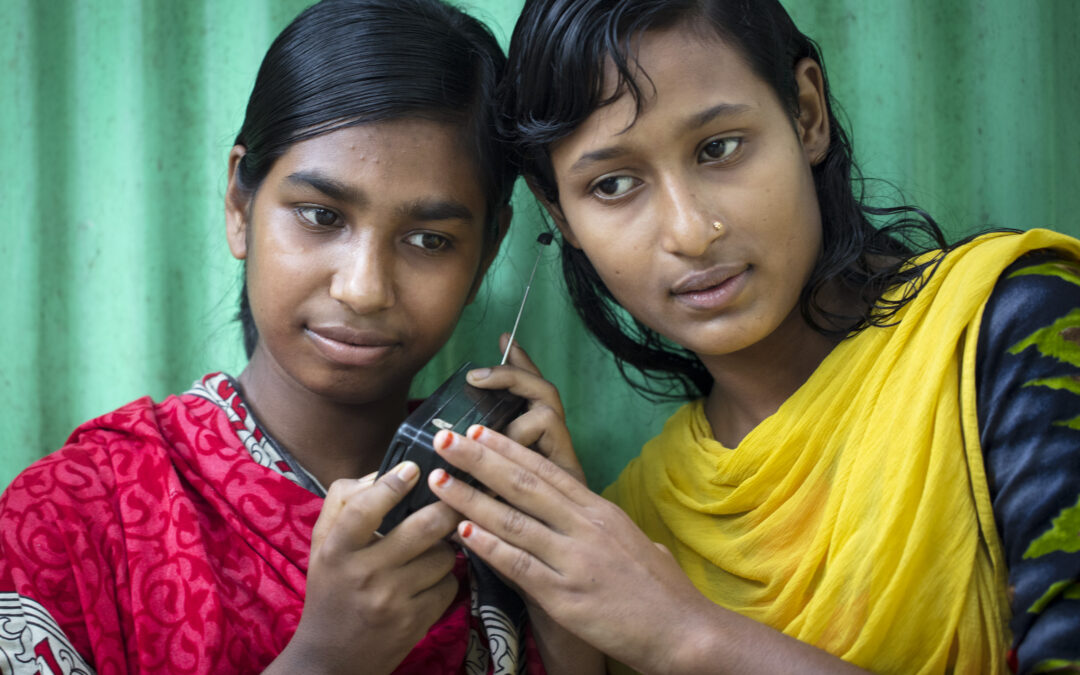
Oct 19, 2022 | Uncategorized
In this module
This module contains four sessions: 1) introducing how to access and synthesize available qualitative and quantitative evidence (Session 5.1), 2) covering how to transform social science data into findings useful for influencing policy and practice (Session 5.2), 3) presenting findings to different audiences (Session 5.3), and 4) describing different approaches and case examples of how to share findings with affected communities in support of local decision-making (Session 5.4).
Evidence synthesis
for social and behavioural data
Content
This session presents ways to access relevant data and information required to undertake an evidence synthesis, and then approaches to synthesizing qualitative evidence from those different sources. It then covers a practical example of synthesizing qualitative and quantitative data in the context of a humanitarian emergency.
Learning outcomes:
- Be able to identify, access and assess evidence from different sources to inform strategies and decision making
- Become familiar with the steps to effectively synthesize qualitative evidence
- Understand the opportunities and challenges for synthesizing qualitative and quantitative evidence in an emergency context
Duration: 125 minutes
How to transform social science data and evidence into actionable findings
Content
This session covers how to effectively design research and transform social science data and evidence into findings that can be used to influence policy and practice.
Learning outcomes:
- Be able to design research that lays the foundation for actionable findings
- Know how to draw out what research findings actually mean in a way that is helpful to community engagement and/or communications activities
- Be able to transform data into useful knowledge and actionable recommendations
Duration: 105 minutes
How to communicate and present research to different audiences
Content
This session covers how to effectively design research and transform social science data and evidence into findings that can be used to influence policy and practice.
Learning outcomes:
- Become familiar with different products and channels for communicating social science evidence
- Know how to understand and map different stakeholders, including intended users of the research findings and recommendations
Duration: 190 minutes
Feeding back to communities and using findings to support community-level solutions and actions
Content
This session describes the different approaches used to share research findings back with communities through a range of case examples. It explains what is needed to ensure this feedback supports the decision-making and action of communities affected by an emergency.
Learning outcomes:
- Understand the need to feed research findings back to communities and the many benefits of doing so
- Be able to design research processes that incorporate a plan to share findings back to communities in a way that supports community-level solutions and actions and addressing power differentials
Duration: 100 minutes
The training modules were developed to address key social science competency domains for those working in community engagement and/or communications related fields. Each module is made up of multiple sessions. Each individual session has a specific focus and learning outcome, which relates directly to the competency statement developed for each domain.
9
Social Science Team Lead, Trainer & Research Specialist
The Collective Service
Acknowledgement
Development of this training package was led by Anthrologica for the Collective Service. The content was co-produced with partners from the Social Science in Humanitarian Action Platform (SSHAP), the Institute of Development Studies (IDS), Translators Without Borders (TWB), Médecins Sans Frontières (MSF), London School of Hygiene and Tropical Medicine (LSHTM), the International Federation of Red Cross and Red Crescent Societies (IFRC), the Rapid Research Evaluation and Appraisal Lab (RREAL) at University College London (UCL), UNICEF’s Social Science Analytics Cell (CASS), UNICEF’s Social Science for Community Engagement (SS4CE) team, the Centers for Disease Control (CDC), Oxfam and READY at Johns Hopkins University (JHU). Sincere thanks are also extended to the United Nations Volunteers (UNVs) who assisted with reviewing translated materials.
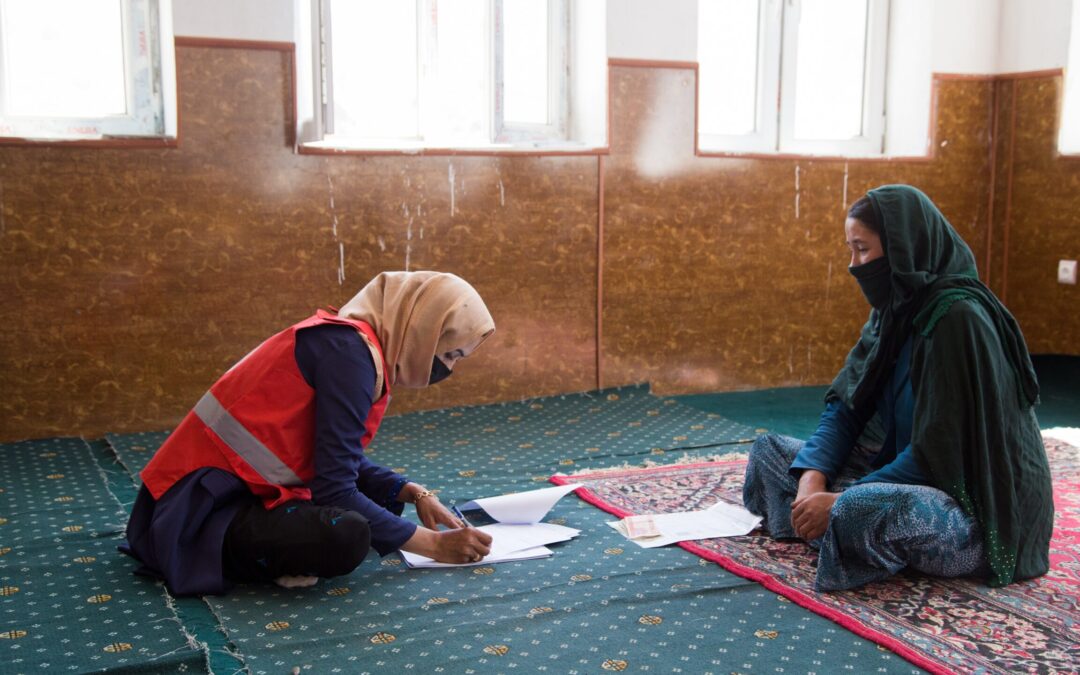
Oct 17, 2022 | Uncategorized
In this module
This module contains ten sessions which focus on qualitative, quantitative and mixed-method data collection and analysis methods, in addition to community feedback mechanisms using the techniques learned for these methodologies. The first four sessions in this module: (Session 4.1) covers how to plan and roll-out social science research, (Session 4.2) analyse the differences between quantitative and qualitative approaches and how and when they can best be applied, and (Session 4.3) detail specific quantitative , and (Session 4.4) qualitative data collection approaches and tools. The next two sessions: (Session 4.5) detail quantitative, and (Session 4.6) qualitative approaches to analyse data in operational social science research. The next two sessions: (Session 4.7) provide an overview of the benefits of applying a mixed methods approach, and (Session 4.8) teach how to triangulate social science data with other types of relevant evidence. Finally, the remaining two sessions: (Session 4.19) focus on how to design and collect data using a community feedback mechanism, and (Session 4.10) how to consolidate and analyse community feedback data.
Localised research: Designing operational social science research that is responsive to communities
Content
This session covers how to plan and roll-out social science research that brings in local knowledge and expertise and puts communities’ knowledge, capacities and needs at the centre.
Learning outcomes:
- Know how to plan and design social science research that is responsive to communities
- Understand the roles that affected communities should play in the different stages of social science research
Duration: 110 minutes
Quantitative and qualitative approaches to generate data in operational social science research
Content
This session lays out the differences between quantitative and qualitative approaches to collecting and analysing socio-behavioural data and the strengths and weaknesses of both of these approaches. It guides participants on when to apply these types of methods, including to which sorts of research questions.
Learning outcomes:
- Know the difference between qualitative and quantitative data collection approaches to social science research
- Know when to apply these different approaches, including to which types of research questions
Duration: 90 minutes
Quantitative data collection methods: Rapid needs assessment (RNA) surveys, and knowledge, attitudes and practice/perceptions (KAP) surveys
Content
This module gives an overview of how to apply quantitative approaches, specifically knowledge, attitudes, practice/perceptions (KAP) surveys to collect data for community engagement and/or communications activities and wider humanitarian response actions
Learning outcomes:
- Be familiar with different quantitative data collection survey methods used by social scientists and relevant to community engagement and/or communications activities
- Understand the key steps for the use of knowledge, attitudes, practice/perception (KAP) surveys
Duration: 100 minutes
Qualitative data collection methods: In-depth interviews, observations, and focus group discussions
Content
This session focuses on qualitative approaches to collecting data that is relevant to community engagement and/or communications activities. Specifically, it covers in-depth interviews, structured and informal observations and focus group discussions.
Learning outcomes:
- Become familiar with the range of different qualitative data collection tools that can be useful for community engagement and/communications activities
- Be able to apply certain qualitative data collection methods
Duration: 140 minutes
Quantitative data analysis in operational social science research
Content
This session gives an overview of how to apply quantitative approaches to analyse data in operational social science research.
Learning outcomes:
- Know how to analyse data collected with quantitative tools such as Knowledge, Attitudes and Practice/Perceptions (KAP) surveys using descriptive statistics.
- Know the different inferential statistics that might be helpful to apply to this type of data
Duration: 120 minutes
Qualitative data analysis in operational social science research
Content
This session aims to improve knowledge around the tools and steps to analyse qualitative data in operational social science research.
Learning outcomes:
- Understand the steps to analyse data collected with qualitative methods like interviews, observations and focus group discussions.
Duration: 110 minutes
Mixing different methods to produce quality evidence to inform action
Content
This session teaches the value and benefits of applying mixed methods approaches.
Learning outcomes:
- Understand the value of a mixed methods approach
- Know different ways of conducting a mixed methods approach
Duration: 90 minutes
Triangulation of data: Why is it important and how does it work?
Content
This session teaches how to triangulate social science data with other types of data to generate evidence relevant to community engagement and/or communications activities.
Learning outcomes:
- Know the importance of data triangulation
- Understand the steps of triangulating different forms and sources of data
Duration: 80 minutes
Community feedback mechanism: Design and data collection
Content
This session focuses on the application of qualitative approaches to design and manage a community feedback mechanism. It introduces community feedback and explains its role in a response, and describes how to set up and collect community feedback data using examples from the Red Cross. This session links the IFRC Community Feedback Kit to the social science operational research context.
Learning outcomes:
- Become familiar with community feedback data and its role in public health emergency responses
- Be able to describe or set up a simple feedback system
- Become familiar with methods to collect community feedback
Duration: 150 minutes
Community feedback mechanism: Consolidation and analysis
Content
This session focuses on the application of qualitative approaches to manage a community feedback mechanism. It describes community feedback consolidation, referral and analysis using examples from the Red Cross. This session links the IFRC Community Feedback Kit to the social science operational research context.
Learning outcomes:
- Become familiar with open and structured feedback data and how it is analyzed
- Become familiar with methods to organise and analyse community feedback
- Understand when feedback is of a critical or sensitive nature
Duration: 115 minutes
The training modules were developed to address key social science competency domains for those working in community engagement and/or communications related fields. Each module is made up of multiple sessions. Each individual session has a specific focus and learning outcome, which relates directly to the competency statement developed for each domain.
9
Social Science Team Lead, Trainer & Research Specialist
The Collective Service
Acknowledgement
Development of this training package was led by Anthrologica for the Collective Service. The content was co-produced with partners from the Social Science in Humanitarian Action Platform (SSHAP), the Institute of Development Studies (IDS), Translators Without Borders (TWB), Médecins Sans Frontières (MSF), London School of Hygiene and Tropical Medicine (LSHTM), the International Federation of Red Cross and Red Crescent Societies (IFRC), the Rapid Research Evaluation and Appraisal Lab (RREAL) at University College London (UCL), UNICEF’s Social Science Analytics Cell (CASS), UNICEF’s Social Science for Community Engagement (SS4CE) team, the Centers for Disease Control (CDC), Oxfam and READY at Johns Hopkins University (JHU). Sincere thanks are also extended to the United Nations Volunteers (UNVs) who assisted with reviewing translated materials.

Oct 17, 2022 | Uncategorized
In this module
This module contains two sessions: 1) covering the main ethical principles guiding social science research, including formal ethical requirements and the importance of gaining community approval (Session 3.1), and 2) introducing practical considerations for how to translate and apply ethical principles to fit local communities and contexts (Session 3.2).
Ethical principles and approvals for social science research in a humanitarian/emergency context
Content
The session covers the main ethical principles that should guide social science research – an important responsibility of the researcher which must be upheld. This session discusses formal ethical requirements and approval processes and what happens when formal approvals are either not possible or not clear. It also explains the importance of gaining community approval and how this might be achieved.
Learning outcomes:
- Know the key ethical principles that guide social science research
- Become familiar with the different ethical requirements and approval processes when doing operational social science research in a humanitarian context
- Understand the importance of gaining community-level approvals
Duration: 100 minutes
Promoting the meaningful translation and application of ethical principles
Content
The session discusses how research teams and practitioners working in community engagement and/or communications during an emergency response, can translate and apply ethical principles to fit local communities and contexts.
Learning outcomes:
- Know the common challenges of translating and applying ethical principles in practice, especially in emergency/humanitarian contexts
- Know strategies of how to more successfully apply ethical principles to research activities that inform community engagement and/or communications activities
Duration: 105 minutes
The training modules were developed to address key social science competency domains for those working in community engagement and/or communications related fields. Each module is made up of multiple sessions. Each individual session has a specific focus and learning outcome, which relates directly to the competency statement developed for each domain.
9
Social Science Team Lead, Trainer & Research Specialist
The Collective Service
Acknowledgement
Development of this training package was led by Anthrologica for the Collective Service. The content was co-produced with partners from the Social Science in Humanitarian Action Platform (SSHAP), the Institute of Development Studies (IDS), Translators Without Borders (TWB), Médecins Sans Frontières (MSF), London School of Hygiene and Tropical Medicine (LSHTM), the International Federation of Red Cross and Red Crescent Societies (IFRC), the Rapid Research Evaluation and Appraisal Lab (RREAL) at University College London (UCL), UNICEF’s Social Science Analytics Cell (CASS), UNICEF’s Social Science for Community Engagement (SS4CE) team, the Centers for Disease Control (CDC), Oxfam and READY at Johns Hopkins University (JHU). Sincere thanks are also extended to the United Nations Volunteers (UNVs) who assisted with reviewing translated materials.


